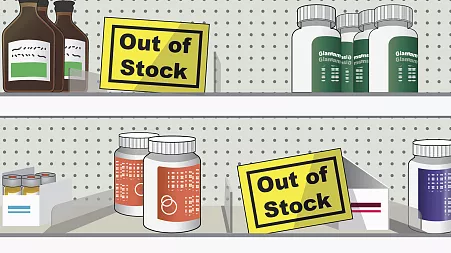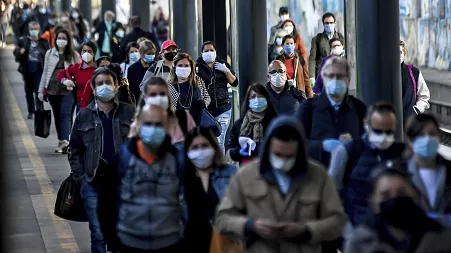Eating a diet rich in ultra-processed foods may increase your risk of dying by 10 percent, new research suggests. The findings add to a growing body of evidence that ultra-processed foods are detrimental to our health.
Read more: Compare the Top Health Savings Account (HSA) Providers
The term "ultra-processed" refers to a broad category of ready-to-eat food products, including packaged snacks, carbonated drinks, instant noodles and ready meals. These products usually contain a long list of often unrecognizable ingredients and are filled with preservatives, emulsifiers, sweeteners and artificial flavorings and colors.
In the United States, these foods account for almost 60 percent of energy intake, according to research published in the medical journal The BMJ. However, numerous studies have linked ultra-processed foods to an increased risk of various diseases, including heart disease, diabetes, bowel cancer and obesity.
Read more: What Is a Health Savings Account?
In a new study from the National Cancer Institute, researchers tracked over half a million U.S. adults over nearly three decades. They found that those who ate the most ultra-processed foods were at a 10 percent increased risk of dying during the study period compared to those with the lowest ultra-processed food intake.
In particular, these foods were associated with an increased risk of heart disease and diabetes-related fatalities but not associated with an increase in cancer-related deaths.
The researchers found that people who consumed more ultra-processed foods tended to have a higher body mass index (BMI) and ate an unhealthier diet overall, as per the Dietary Guidelines for Americans. However, the association between ultra-processed food consumption and mortality persisted even after these variables were accounted for.
Some ultra-processed foods were also worse than others when it came to the risk of dying within the study period.
Read more: Discover the Right Bank Account for Your Finances
"We observed that highly processed meat and soft drinks were a couple of the subgroups of ultra-processed food most strongly associated with mortality risk and eating a diet low in these foods is already recommended for disease prevention and health promotion," Erikka Loftfield, Stadtman Investigator at the National Cancer Institute, said in a statement.
These findings are based on purely observational data, but they add to our growing understanding of the detrimental effects of ultra-processed foods on human health.
"Our study results support a larger body of literature, including both observational and experimental studies, which indicate that ultra-processed food intake adversely impacts health and longevity," Loftfield said. "However, there is still a lot that we don't know, including what aspects of ultra-processed foods pose potential health risks."
Loftfield presented the findings at the annual meeting of the American Society of Nutrition, NUTRITION 2024, in Chicago.
Is there a health problem that's worrying you? Do you have a question about ultra-processed foods? Let us know via health@newsweek.com. We can ask experts for advice, and your story could be featured in Newsweek.
Disclaimer: The copyright of this article belongs to the original author. Reposting this article is solely for the purpose of information dissemination and does not constitute any investment advice. If there is any infringement, please contact us immediately. We will make corrections or deletions as necessary. Thank you.




